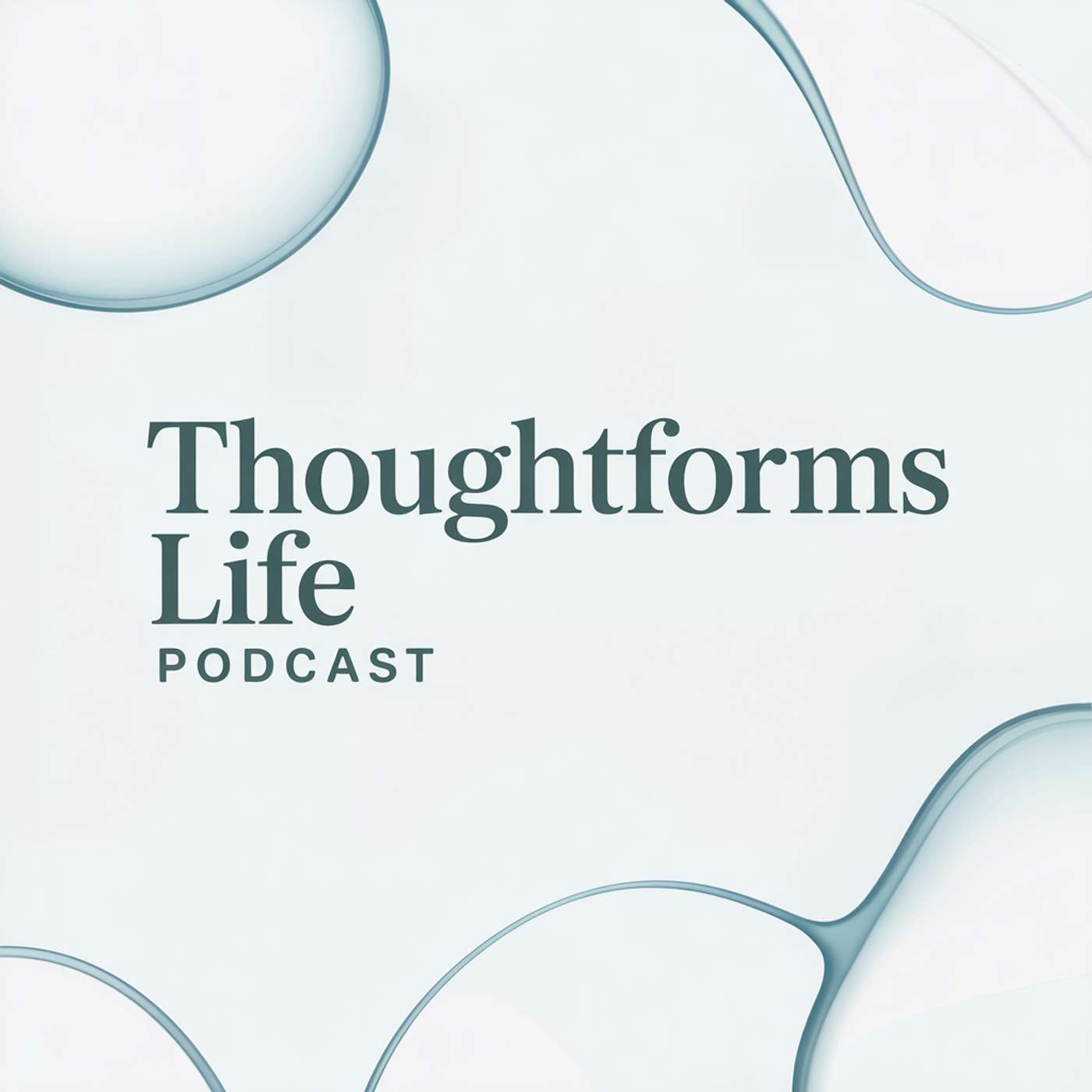

Thoughtforms Life
Michael Levin
A podcast by Professor Michael Levin exploring the frontiers of biology, cognition, and emergence. Engage in conversations about morphogenesis, bioelectricity, and synthetic life — and uncover how intelligence and agency emerge from the most fundamental levels of nature.
Episodes
Mentioned books

5 snips
Mar 13, 2025 • 33min
Life, Mind, and Computing: A Diverse Intelligence Perspective
Dive into the fascinating intersection of biology, computation, and consciousness. Discover how living systems creatively solve problems and adapt over time. Learn about biobots like anthrobots and xenobots, which blur the lines between biology and technology. Explore anatomical attractors and their roles in species diversity beyond evolution. Plus, ponder the emergent behaviors of these novel entities as we rethink intelligence and adaptability in the natural world.

Mar 11, 2025 • 36min
Cellular Automata and Models of Health and Disease
Willem Nielsen, a researcher at the Wolfram Institute, shares his insights on cellular automata models of disease. He explains how single-cell perturbations can mimic diseases and discusses the limitations of traditional disease classification. The conversation explores the predictive power of simple metrics, emphasizing how data transparency can enhance disease modeling. Nielsen illustrates how evolving organisms under stress leads to robustness, paralleling biological processes, and highlights the fascinating concept of planaria as a model for understanding morphological competency and adaptability.

Mar 4, 2025 • 1h 12min
Conversation of Michael Levin with Iain McGilchrist
Iain McGilchrist, a psychiatrist and philosopher renowned for his work on the brain's lateralization, joins Michael Levin for a thought-provoking discussion. They explore the notion of intelligence permeating the cosmos and delve into panpsychism. Their conversation spans the fascinating intersection of biology and philosophy, including rapid adaptations of planaria and the implications of cellular decision-making. They also ponder the creativity constraints of the mind, Turing-like mechanisms in pattern formation, and the ethics surrounding emerging synthetic minds.

Mar 1, 2025 • 1h 3min
Bioelectric Networks: An Interface to Engineering with the Agential Material of Life
This is a ~1 hour talk (given at the Departmental Seminar series at the Virginia Tech-Wake Forest School of Biomedical Engineering and Sciences) on the use of a cognitive approach to bioengineering and regenerative medicine, in which morphogenesis is the behavior (in anatomical space) of a collective intelligence of cellular swarms. I describe our work that takes advantage of the bioelectric interface to re-specify the targets of morphogenesis.
CHAPTERS:(00:00) Agential Material for Bioengineering(02:00) The Anatomical Compiler Goal(04:00) Biology as Agential Material(06:00) Intelligence Below Cell Level(09:00) Anatomy Not Just DNA(12:00) Hardware vs Software Biology(14:00) Cellular Collective Intelligence Examples(18:00) Creative Problem-Solving in Cells(22:00) Cognitive Glue and Goal-Seeking(25:00) Bioelectricity: Ancient Communication(28:00) Reading and Writing Patterns(30:00) Rewriting Collective Cell Memory(33:00) Regenerating Limbs in Frogs(35:00) Planaria Pattern Memory(39:00) Plasticity Beyond Species(41:00) Novel Shapes and Galls(44:00) Computational Models for Repair(49:00) Cancer as Goal Failure(50:00) Bioelectric Cancer Suppression(53:00) Novel Anatomical Goals: Xenobots(01:00:00) Human Anthrobots from Cells(01:02:00) Autonomous Personalized Therapeutics(01:04:00) Top-Down Biomedical Approaches(01:06:00) Biorobotics and Bioprompting(01:07:00) Ethics of Diverse Beings
CONNECT WITH ME:
Podcast Website
YouTube
Apple Podcasts
Spotify
Twitter
Blog
The Levin Lab

Feb 25, 2025 • 1h 20min
Aastha Jain Simes and I Interview Pamela Lyon
In a captivating discussion, scholar Pamela Lyon explores her biogenic approach to cognition. She dives into how traditional Western cognitive models fell short and emphasizes the importance of grounding cognition in biology. Pamela unveils fascinating examples from microbes exhibiting cognitive traits, such as Bacillus subtilis, and discusses the collective behaviors of Myxococcus. The conversation also touches on the implications of viewing cognition across all living systems, and how this perspective could revolutionize neuroscience and even artificial intelligence.

Feb 24, 2025 • 30min
Discussion with Mayli Mertens on Molecular Placebos and Bioelectricity
This is a ~30 minute conversation with Mayli Mertens (Marie Curie Postdoctoral fellow at University of Antwerp, https://philpeople.org/profiles/mayli-mertens) and I on the topic of molecular placebos, bioelectricity, and self-fulfilling prophecies in medicine (the latter being the title of her recent paper: https://link.springer.com/article/10.1007/s11017-024-09677-z )
CONNECT WITH ME:
Podcast Website
YouTube
Apple Podcasts
Spotify
Twitter
Blog
The Levin Lab

Feb 21, 2025 • 1h 1min
Biological and Technological Information Processing: Commonalities, Differences and Implications
Michael Levin, a biologist and director of the Levin Lab, delves into the intriguing parallels and distinctions between biological and technological information-processing systems. He explores astonishing biological intelligence, like how planarians retain memories through regeneration and how tadpoles reorganize their anatomy. Levin highlights the role of bioelectricity in development and the implications for AI and ethics, questioning our assumptions about autonomy and intelligence in both nature and technology. He also discusses the creativity of biology in problem-solving and the unexpected behaviors emerging from simple systems.

Feb 17, 2025 • 59min
Conversation 2 Between Gunnar Babcock, Daniel McShea, Mark Solms, and Michael Levin
This is a ~1 hour conversation on topics of consciousness, affect, evolution, and philosophy between Gunnar Babcock (https://cals.cornell.edu/gunnar-babcock), Daniel McShea (https://scholars.duke.edu/person/dmcshea), Mark Solms (https://scholar.google.com/citations?user=vD4p8rQAAAAJ&hl=en), and I.
CONNECT WITH ME:
Podcast Website
YouTube
Apple Podcasts
Spotify
Twitter
Blog
The Levin Lab

Feb 12, 2025 • 1h 30min
Conversation with Richard Watson and Leo Caves
In this engaging discussion, futurist Richard Watson and researcher Leo Caves delve into fascinating concepts like eigenforms and resonance. Richard explores how observer-dependent objects emerge through stable couplings, and introduces pilot-wave ideas that challenge traditional views of particles. Leo expands the conversation to biology, examining how organisms function as oscillatory structures and the role of harmonics in their behavior. Together, they reflect on cognition, emergent properties, and the interplay between structure and process in understanding life.

Feb 9, 2025 • 1h 55min
A Conversation with Mark Solms on Life and Mind
This is a ~2-hour Q&A with Mark Solms (https://en.wikipedia.org/wiki/Mark_Solms) at the "Public conversation about their work and its implications for psychoanalysis" series of the Annual meeting of the American Psychoanalytic Association.
CONNECT WITH ME:
Podcast Website
YouTube
Apple Podcasts
Spotify
Twitter
Blog
The Levin Lab


